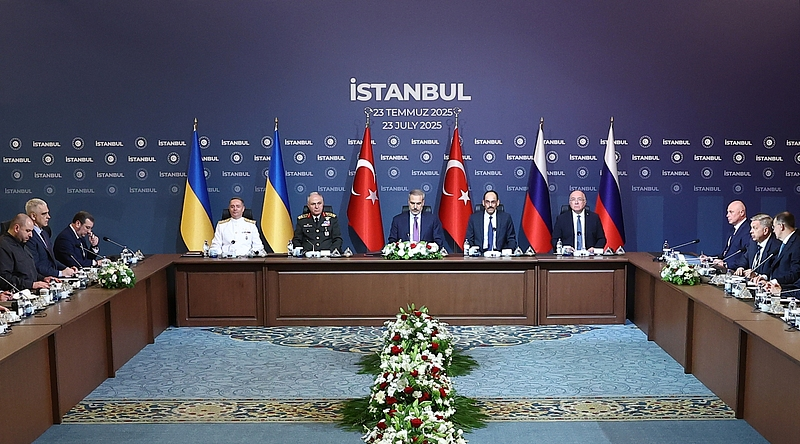Under the chandelier-lit halls of Istanbul’s historic Çırağan Palace, Russian and Ukrainian delegations met for a third round of peace talks—achieving another large-scale prisoner swap but hitting a wall on ceasefire terms and high-level meetings.
Chaired by Turkish Foreign Minister Hakan Fidan, the closed-door session brought together Russian presidential aide Vladimir Medinsky and Rustem Umerov, secretary of Ukraine’s National Security and Defense Council. In under an hour, both sides agreed to exchange 1,200 prisoners of war and swap roughly 30 civilian detainees from Russia’s Kursk region.
Russia has already returned the bodies of 7,000 fallen Ukrainian soldiers and signaled its readiness to send back 3,000 more. Ukraine hasn’t publicly released its tally of returned soldiers but hailed the swap as “ongoing and vital,” especially for those “seriously ill and severely wounded,” according to President Volodymyr Zelenskyy.
Yet on the core issue of a ceasefire, Kyiv pressed for a full and unconditional halt to strikes on civilians and critical infrastructure. “We are ready for a ceasefire now,” Umerov told reporters, calling it “the essential foundation for effective diplomacy.” Moscow, however, remains opposed to a blanket ceasefire until other political steps are in place.
To bridge this gap, Russia proposed short 24- to 48-hour pauses along the front line to evacuate the wounded and recover bodies. It also suggested three online working groups to tackle political, humanitarian and military issues in parallel.
On the prospect of a direct meeting between Presidents Vladimir Putin and Volodymyr Zelenskyy, Ukraine proposed a gathering by late August with potential participation from U.S. President Donald Trump and Turkish President Recep Tayyip Erdoğan. Medinsky said such a summit “is not being considered” until preliminary agreements are secured.
Fidan framed the mood succinctly: “Our goal is to end this bloody war, which has come at a heavy cost, as soon as possible.” But after two earlier rounds in May and June led to thousands of exchanges but no ceasefire breakthrough, questions loom over whether humanitarian progress can translate into lasting peace.
As the world watches, Istanbul’s third talk highlights both the power and limits of diplomacy in conflict. Will data-driven momentum on prisoner swaps pave the way for broader truce talks—or will ceasefire disagreements keep negotiations grounded?
Reference(s):
Russia, Ukraine agree on prisoner exchange, differ on ceasefire
cgtn.com



